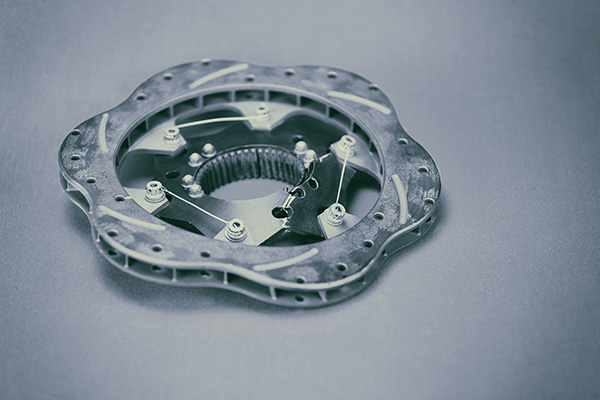
Have you ever felt a shaky steering wheel or a pulsing brake pedal when slowing down? These are classic signs of warped brake rotors. While the term "warped" often brings images of metal bending like a soda can, the reality is a bit more complex. Brake rotors don’t actually warp in the way you might think. They develop uneven surfaces or irregularities due to various factors. Let’s see what causes these issues and how to prevent them.
What Are Brake Rotors and Why Are They Important
Brake rotors are a critical part of your car’s braking system. They’re the flat, disc-shaped components that your brake pads press against to create the friction needed to slow down or stop your vehicle. They're engineered to handle extreme conditions because they’re exposed to intense heat and pressure every time you brake.
However, even the most robust rotors have their limits. Prolonged stress, improper braking habits, or mechanical issues can lead to the uneven surface wear often referred to as “warping.”
Excessive Heat
Heat is your braking system’s biggest enemy. Every time you press the brake pedal, friction between the pads and rotors generates heat. While rotors are designed to dissipate heat effectively, repeated braking under intense conditions can overwhelm them.
For example, driving downhill for an extended period or constantly stopping in heavy traffic can cause the rotor surface to heat up unevenly. This uneven heating leads to thermal spots, where specific areas become harder and more resistant to wear. Over time, this creates an uneven surface that can feel like a warped rotor when braking.
Improper Installation or Torque Issues
Did you know that the way your wheels are installed can impact your brake rotors? The rotor can become slightly distorted when lug nuts aren’t tightened evenly or to the manufacturer’s specified torque settings. This misalignment can result in uneven wear as the brake pads make inconsistent contact with the rotor surface.
It’s a simple mistake that can cause significant headaches, which is why ensuring proper installation during routine maintenance is essential.
Frequent Hard Braking
Are you guilty of slamming on the brakes more often than you’d like to admit? Hard braking not only wears out your brake pads quickly but also puts unnecessary stress on your rotors.
Repeated sudden stops generate extreme heat, which can cause the rotor material to expand unevenly. Over time, this can lead to permanent irregularities in the rotor surface, affecting your braking performance and vehicle safety.
Rust and Corrosion
Brake rotors are typically made from cast iron, a material prone to rusting when exposed to moisture. Road salt can accelerate this corrosion process during wet or snowy conditions. If your car sits unused for an extended period, rust can develop on the rotor surface, creating an uneven braking experience.
Light rust may wear off during regular driving, but more significant corrosion can lead to pitting or surface inconsistencies that mimic the symptoms of rotor warping.
Cheap or Low-Quality Rotors
Not all brake rotors are created equal. Low-quality or aftermarket rotors might save you money upfront but often lack higher-quality options' durability and heat resistance.
Inferior materials can warp or develop uneven wear more quickly, especially under demanding conditions. Investing in rotors designed for your vehicle’s specifications is always a smarter long-term choice.
How to Prevent Brake Rotor Issues
While rotor issues can be frustrating, you can take steps to minimize the risks:
- Drive smart: Avoid riding the brakes on downhill stretches and anticipate stops to use gradual braking.
- Keep up with maintenance: Routine inspections can catch minor issues before they turn into costly repairs.
- Check lug nut torque: Ensure wheels are installed correctly and evenly tightened.
- Invest in quality parts: When replacing rotors, choose high-quality options suited for your car’s make and model.
When to Replace Your Brake Rotors
If you’re experiencing signs like vibration during braking, unusual noises, or reduced stopping power, inspect your rotors. While minor issues can sometimes be fixed with resurfacing, significant damage typically requires a full replacement.
Ignoring rotor problems can lead to decreased safety and even more expensive repairs down the line.
Noticing brake vibrations or noises? Bring your vehicle to Atlanta Car Care for a comprehensive brake check. Our experts will ensure your car is ready to stop when you need it most. Schedule your visit now!